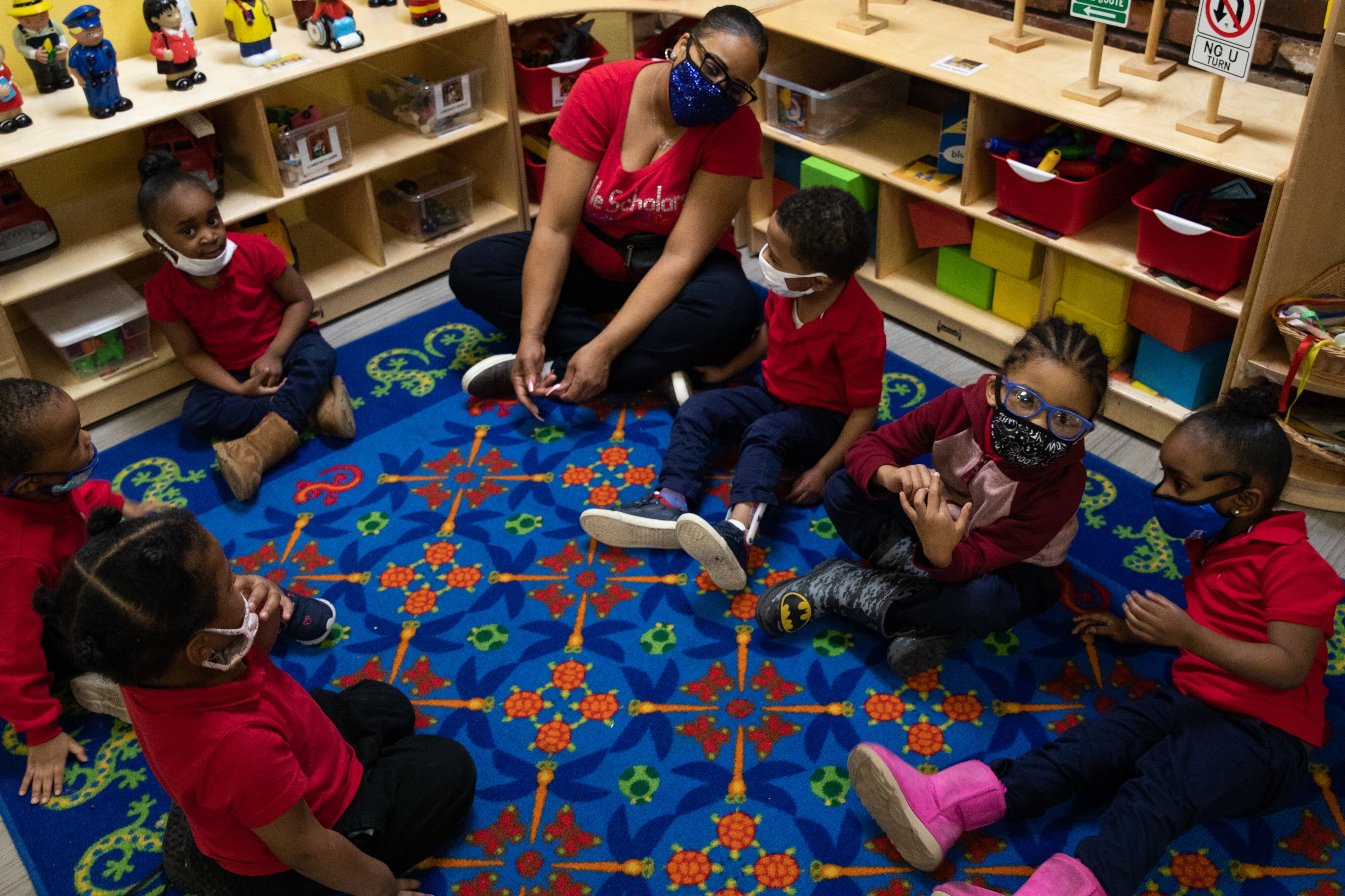After setting aside nearly $300 million last year for direct grants for child care centers, Illinois will spend another $140 million to help stabilize a sector shaken by the coronavirus pandemic.
Child care centers across the state are eligible to apply for the business recovery grants to help shore up operations as the sector tries to claw back from enrollment declines, mounting safety costs, and payment delays from overburdened families.
Illinois stands to receive an estimated $1.6 billion in federal emergency dollars for early childhood education on top of more than $8 billion for K-12 school districts across three stimulus packages. As for how it will be spent, Gov. J.B. Pritzker’s office did not offer additional details Friday even as he broadly unveiled more changes forthcoming to early education in the state.
As had been expected, Illinois will consolidate oversight of early childhood services into one agency beginning July 1.
The new Division of Early Childhood will be housed under the state Department of Human Services. Currently, oversight of critical early childhood programs, such as a stipend that helps low-income families pay for child care and oversight of prekindergarten and home visiting programs, are functions split among agencies. Advocates have long described the landscape as fragmented and said that would prevent the state from embarking on such ambitious projects as rolling out universal pre-K.
In 2019, Pritzker established a 29-person funding commission and charged it with trying to solve a billion-dollar problem: How to strengthen an early childhood system that is considered a national innovator but enrolls too few children from birth to 5 in any sort of programming. The commission’s work took on a critical new dynamic once the pandemic began to have roiling effects on the economy and on child care programs, many of which struggled to continue operations.
The governor’s child care grant program that debuted last summer — believed to be the largest such investment in the country in the sector — ultimately granted $290 million to 5,000 providers, Pritzker’s office said.
In addition to the new child care agency, the Pritzker administration will launch a network of early childhood planning councils modeled after a program up and running in Aurora. The councils will bring together nonprofits, school districts, governments, and providers to assess what’s available to families, what’s needed, and how to boost enrollment in programs.
Asked by Chalkbeat for more details on how it plans to spend the rest of the federal emergency dollars for children under age 5, the governor’s office did not immediately respond.






